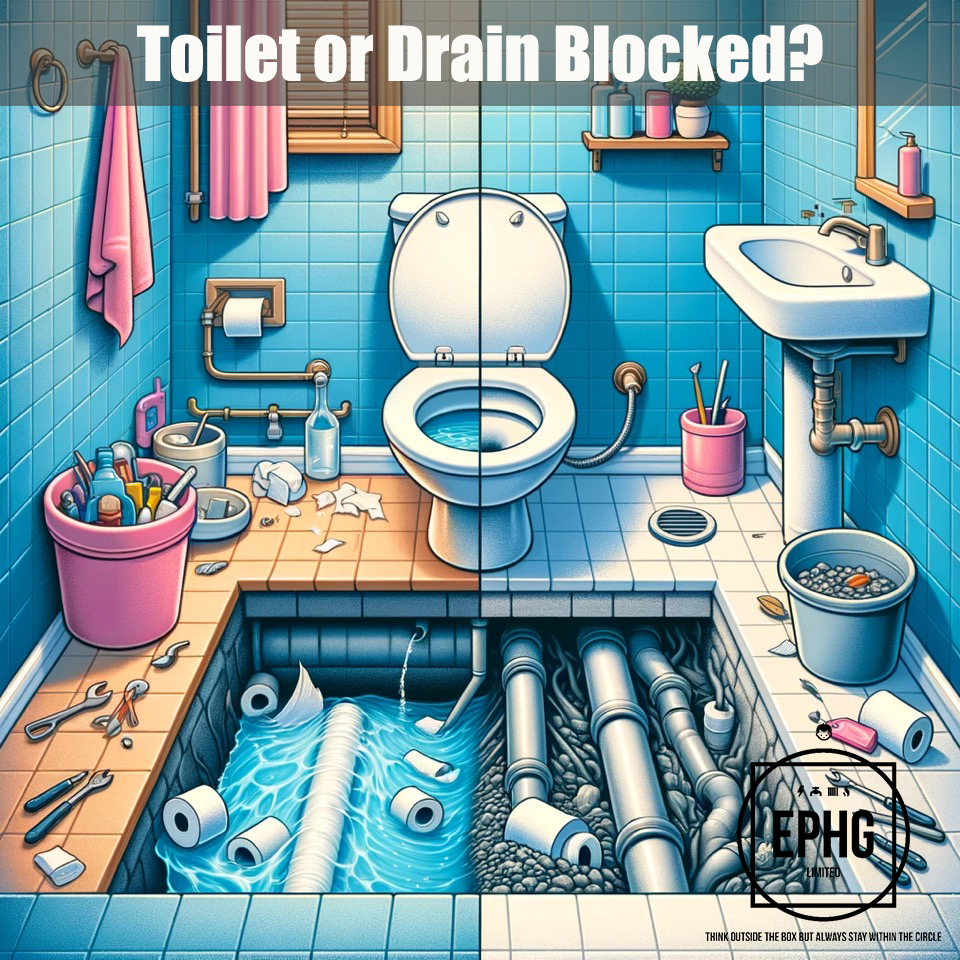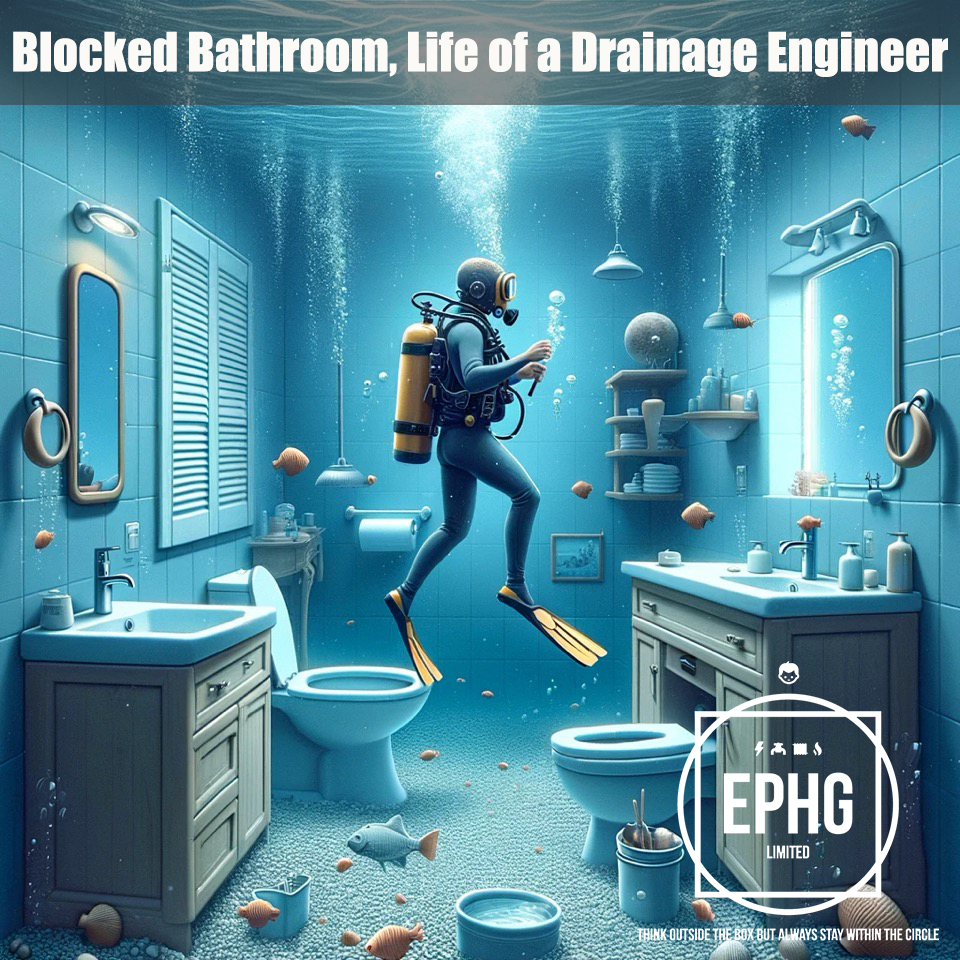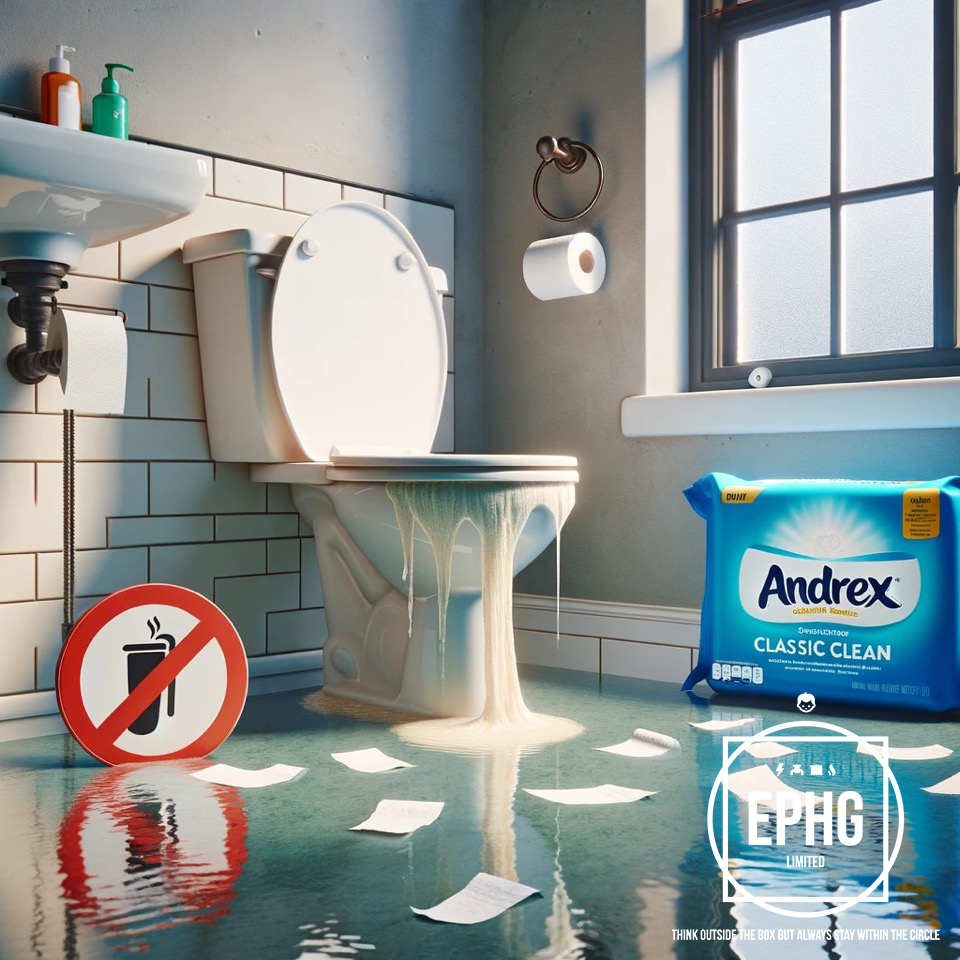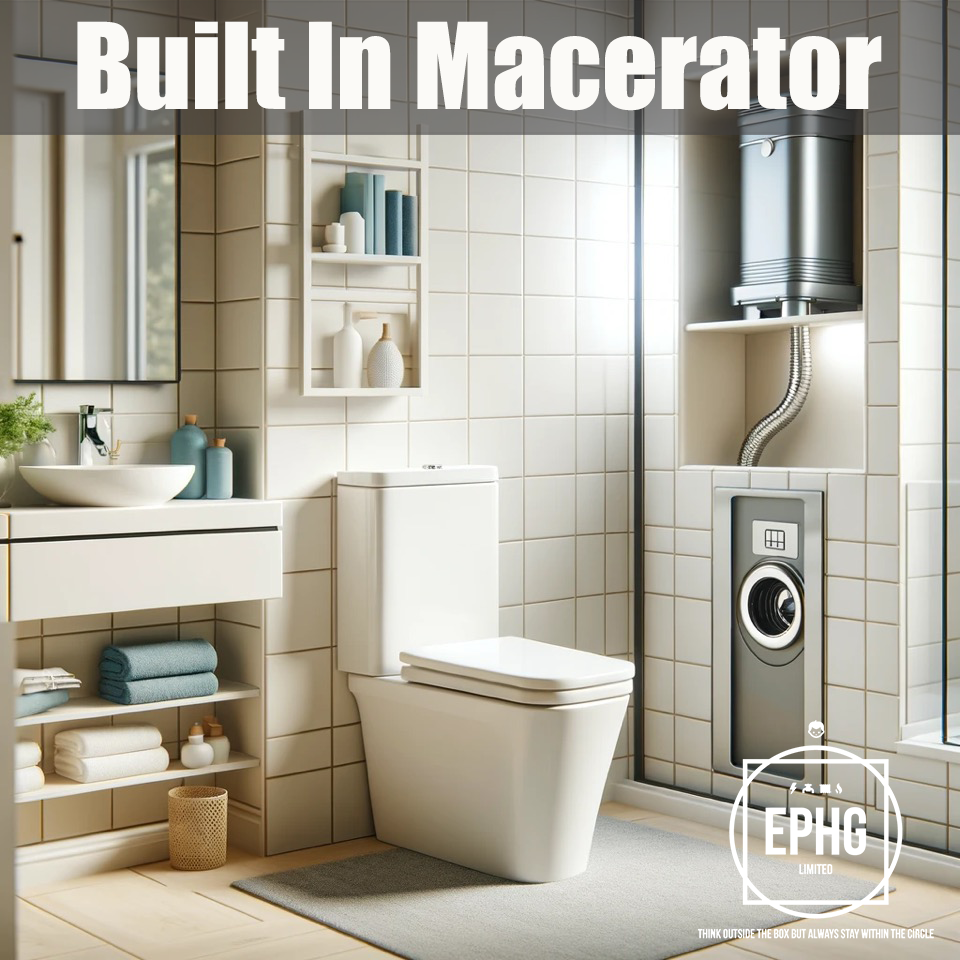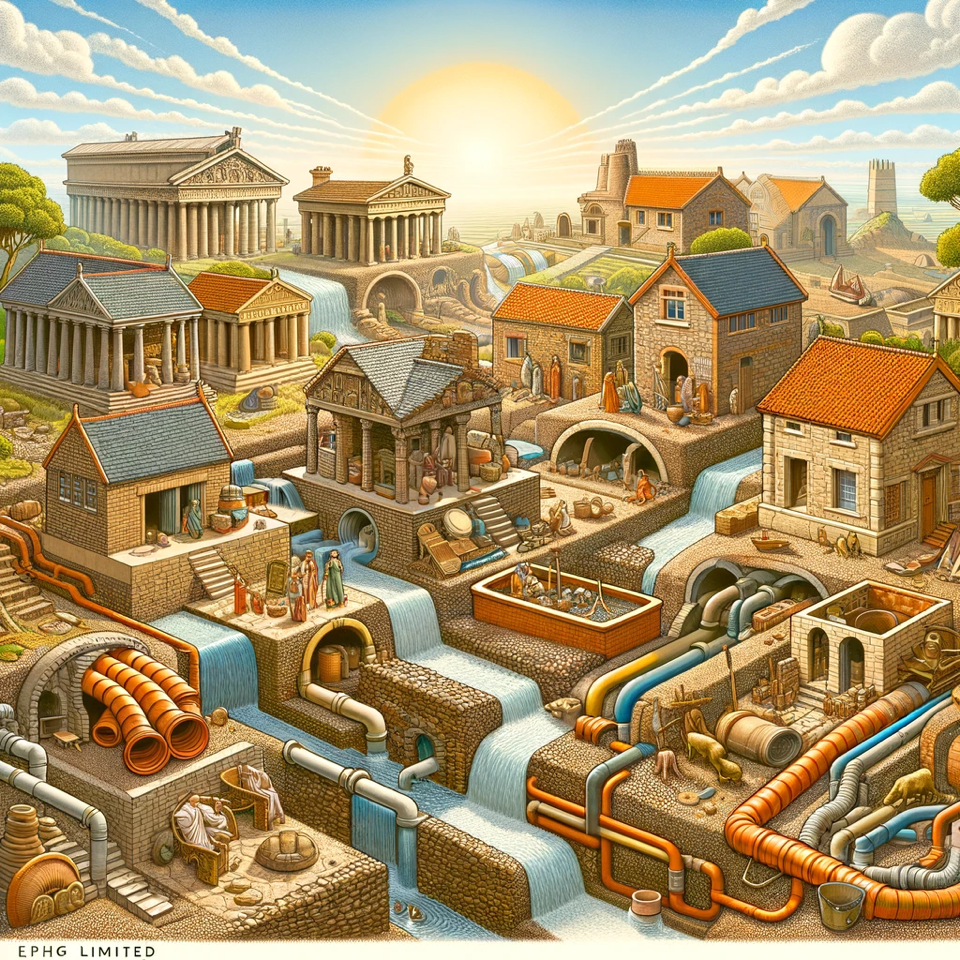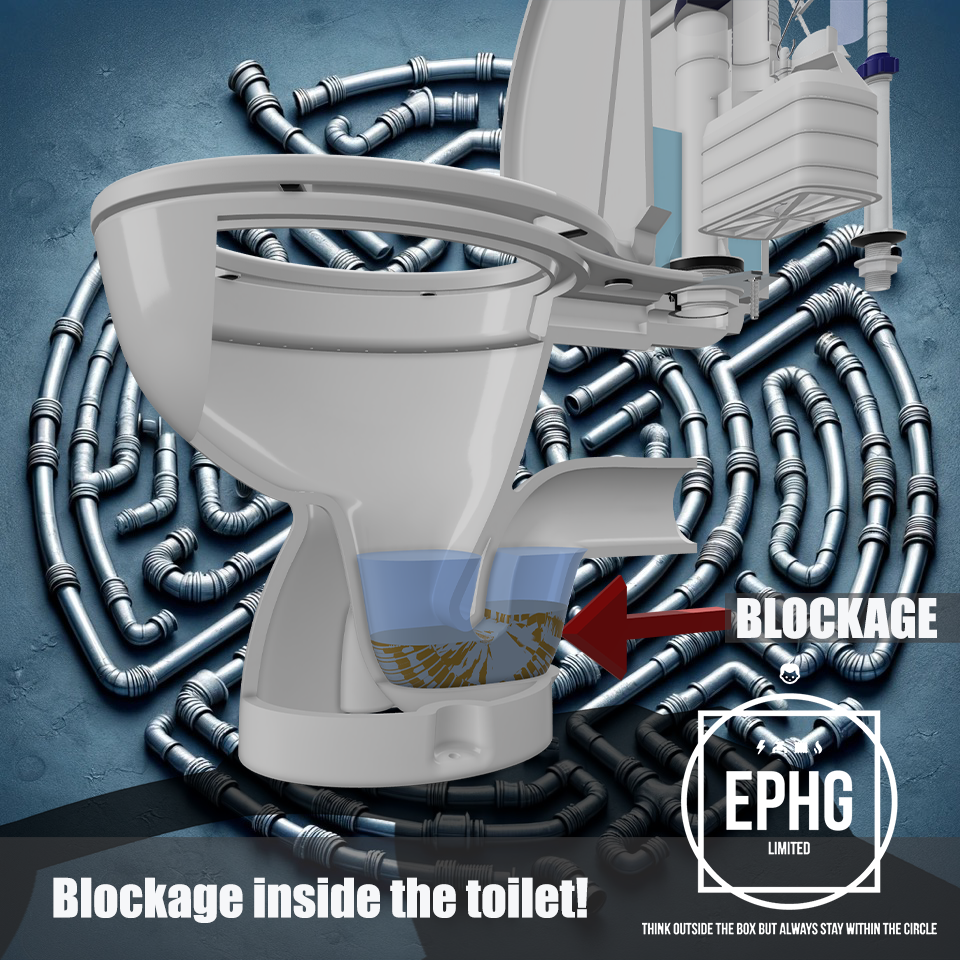
Illustration of a red arrow pointing to where a typical blockage is inside a toilet.
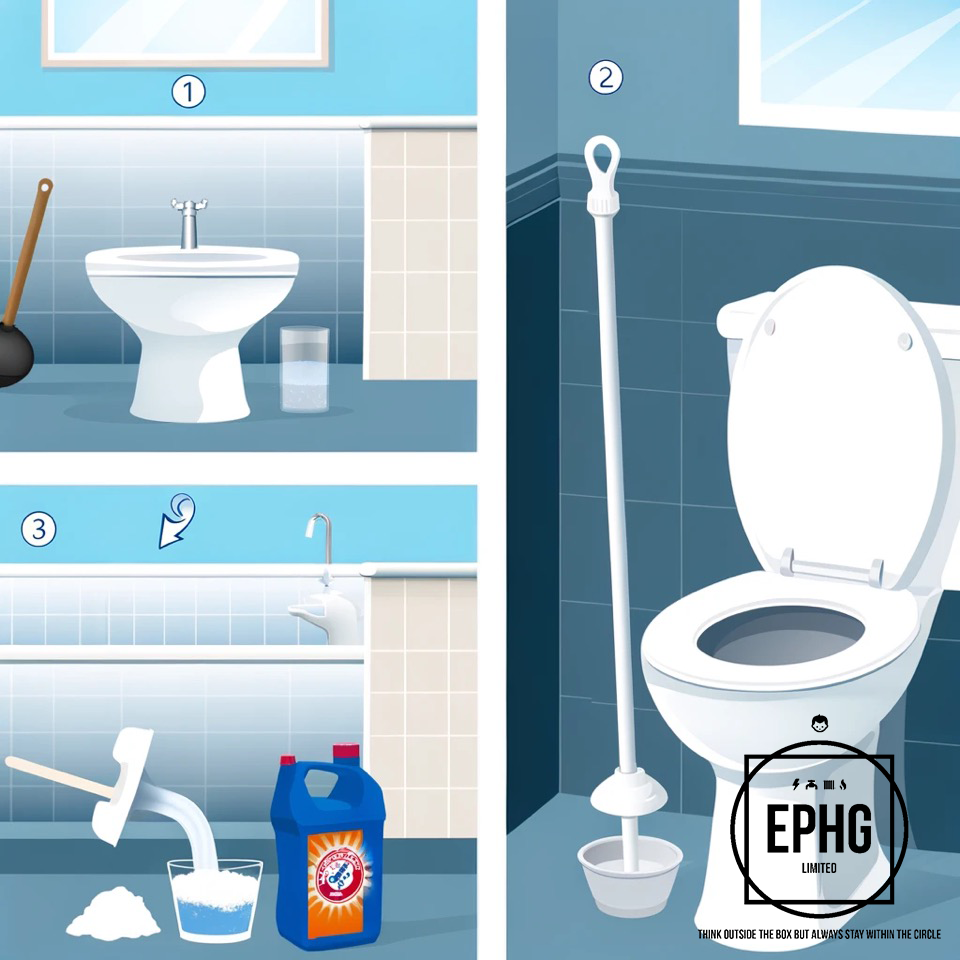
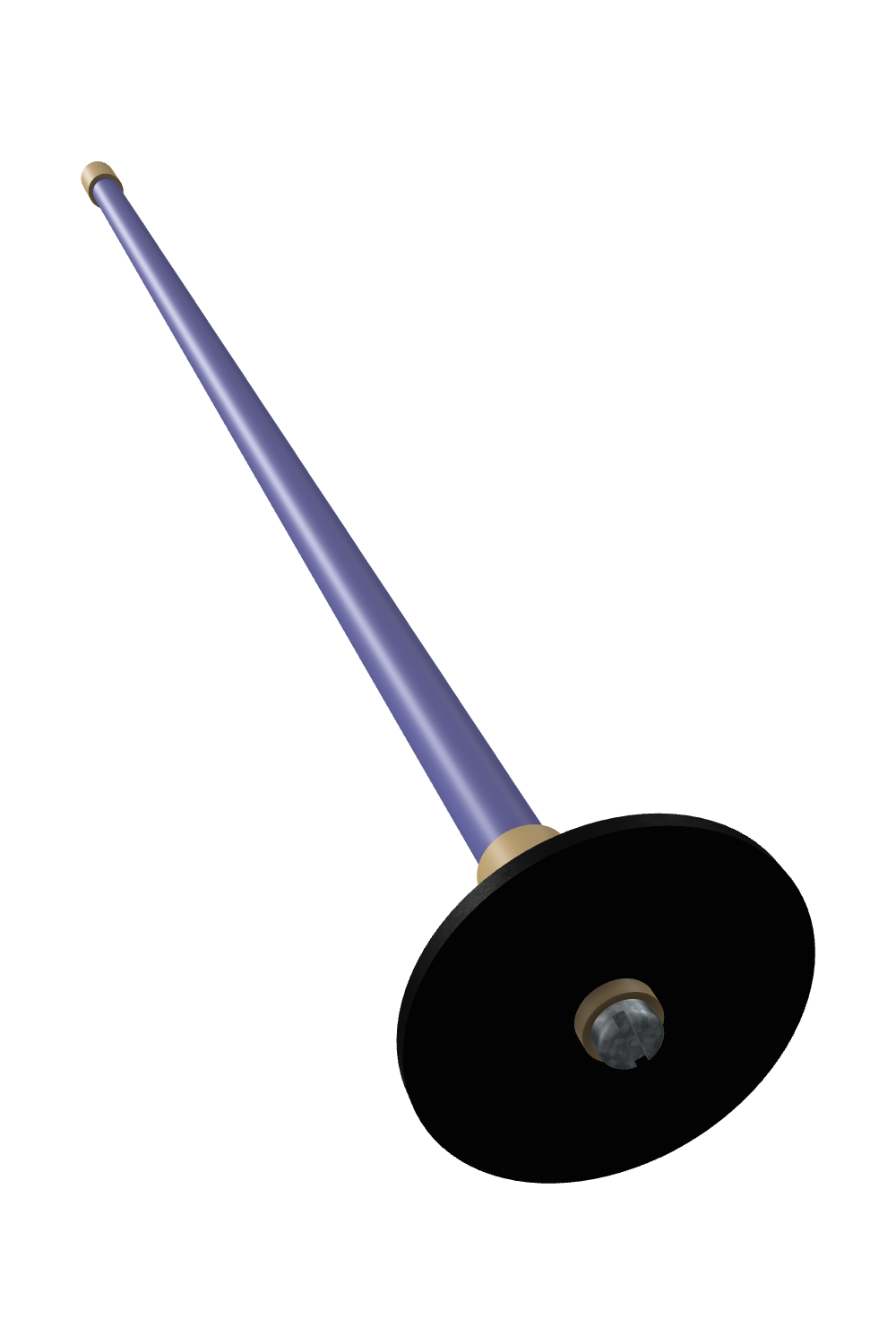
Professional Drain Rod Plunger
How to Fix a Blocked Toilet: DIY Solutions and Expert Advice
Experiencing a blocked toilet is a common yet distressing issue faced by many households. Before panic sets in, it's essential to understand the difference between a simple blockage and a more severe problem within your plumbing system. In this guide, we'll explore practical solutions to fix a blocked toilet, differentiate between toilet blockages and internal plumbing issues, and discuss when to call an emergency plumber or an emergency drainage engineer.
Identifying the Issue: Blocked Toilet vs. Internal Blockage vs. Blockage Inside The Toilet
A blocked toilet typically refers to a clog within the toilet itself or in the immediate drainage pipes. Common causes include excessive toilet paper, foreign objects, or accumulated waste. Symptoms are usually immediate and include water rising after flushing instead of draining away.
An internal blockage goes beyond the toilet, affecting the wider plumbing system. This might manifest as water backing up in other drains, unpleasant odors, or gurgling sounds from the pipes. Such blockages can indicate deeper issues requiring professional attention.
A Blockage inside the toilet generally refers to a blockage in the trap of the toilet and before it gets to the soil pipe.
DIY Fixes for a Blocked Toilet
Before calling in the professionals, there are several methods you can try to unclog a blocked toilet:
- Plunger: A classic first line of defense. Ensure a tight seal around the drain and use a forceful, pumping motion to dislodge the blockage.
- Baking Soda and Vinegar: Pour one cup of baking soda followed by one cup of vinegar into the toilet. Wait 30 minutes before attempting a flush.
- Toilet Auger: A more advanced tool that reaches deeper into the drain to break up clogs beyond the reach of a plunger.
Always wear protective gloves and avoid using chemical drain cleaners, which can damage your plumbing and are harmful to the environment.
When to Call a Professional
If DIY methods fail, it's time to consider professional help. But should you call an emergency plumber or an emergency drainage engineer?
- Emergency Plumber: Best suited for immediate, toilet-specific issues or if there's a problem with the overall plumbing in your home, such as leaks or fixture installation.
- Emergency Drainage Engineer: Ideal for extensive blockages beyond the toilet, issues with sewer lines, or if there are external drainage problems affecting your property.
It's crucial to describe the problem accurately when contacting a professional to ensure the right expert addresses your issue efficiently.
Preventing Future Blockages
Prevention is better than cure. Regular cleaning, avoiding flushing non-degradable items (like wet wipes or sanitary products), and conducting periodic checks can help maintain a clear, functioning toilet. Educate all household members about what should and shouldn't go down the toilet to avoid future blockages.
Conclusion
A blocked toilet can disrupt your daily life, but understanding how to tackle the problem effectively can save you time and money. Whether it's a DIY fix or requiring professional assistance, addressing a toilet blockage promptly can prevent more significant issues down the line. Remember, if in doubt, calling a professional is always the safest option.
